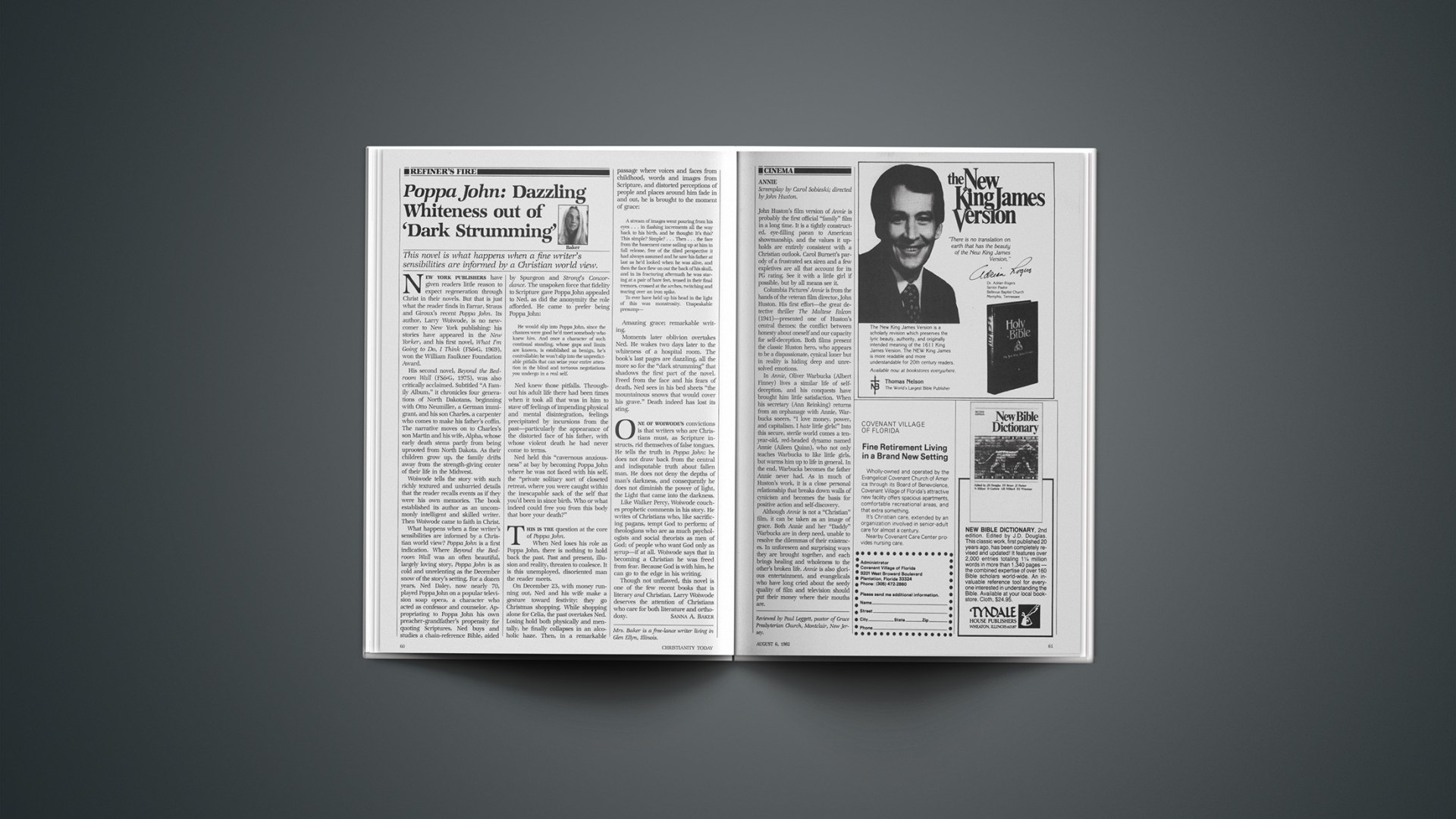Screenplay by Carol Sobieski; directed by John Huston.
John Huston’s film version of Annie is probably the first official “family” film in a long time. It is a tightly constructed, eye-filling paean to American showmanship, and the values it upholds are entirely consistent with a Christian outlook. Carol Burnett’s parody of a frustrated sex siren and a few expletives are all that account for its PG rating. See it with a little girl if possible, but by all means see it.
Columbia Pictures’ Annie is from the hands of the veteran film director, John Huston. His first effort—the great detective thriller The Maltese Falcon (1941)—presented one of Huston’s central themes: the conflict between honesty about oneself and our capacity for self-deception. Both films present the classic Huston hero, who appears to be a dispassionate, cynical loner but in reality is hiding deep and unresolved emotions.
In Annie, Oliver Warbucks (Albert Finney) lives a similar life of self-deception, and his conquests have brought him little satisfaction. When his secretary (Ann Reinking) returns from an orphanage with Annie, Warbucks sneers, “I love money, power, and capitalism. I hate little girls!” Into this secure, sterile world comes a ten-year-old, red-headed dynamo named Annie (Aileen Quinn), who not only teaches Warbucks to like little girls, but warms him up to life in general. In the end, Warbucks becomes the father Annie never had. As in much of Huston’s work, it is a close personal relationship that breaks down walls of cynicism and becomes the basis for positive action and self-discovery.
Although Annie is not a “Christian” film, it can be taken as an image of grace. Both Annie and her “Daddy” Warbucks are in deep need, unable to resolve the dilemmas of their existences. In unforeseen and surprising ways they are brought together, and each brings healing and wholeness to the other’s broken life. Annie is also glorious entertainment, and evangelicals who have long cried about the seedy quality of film and television should put their money where their mouths are.
Reviewed by Paul Leggett, pastor of Grace Presbyterian Church, Montclair, New Jersey.










